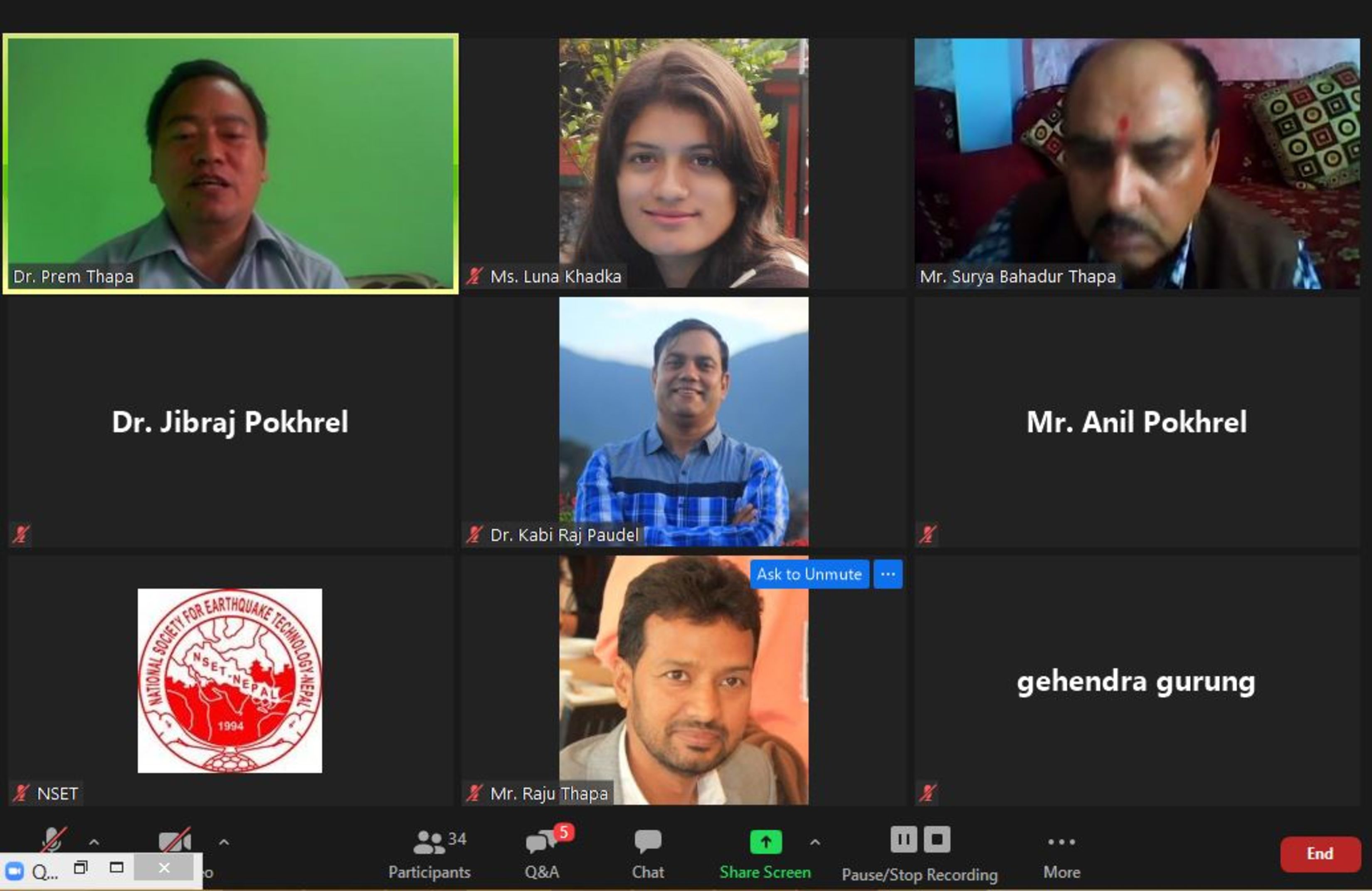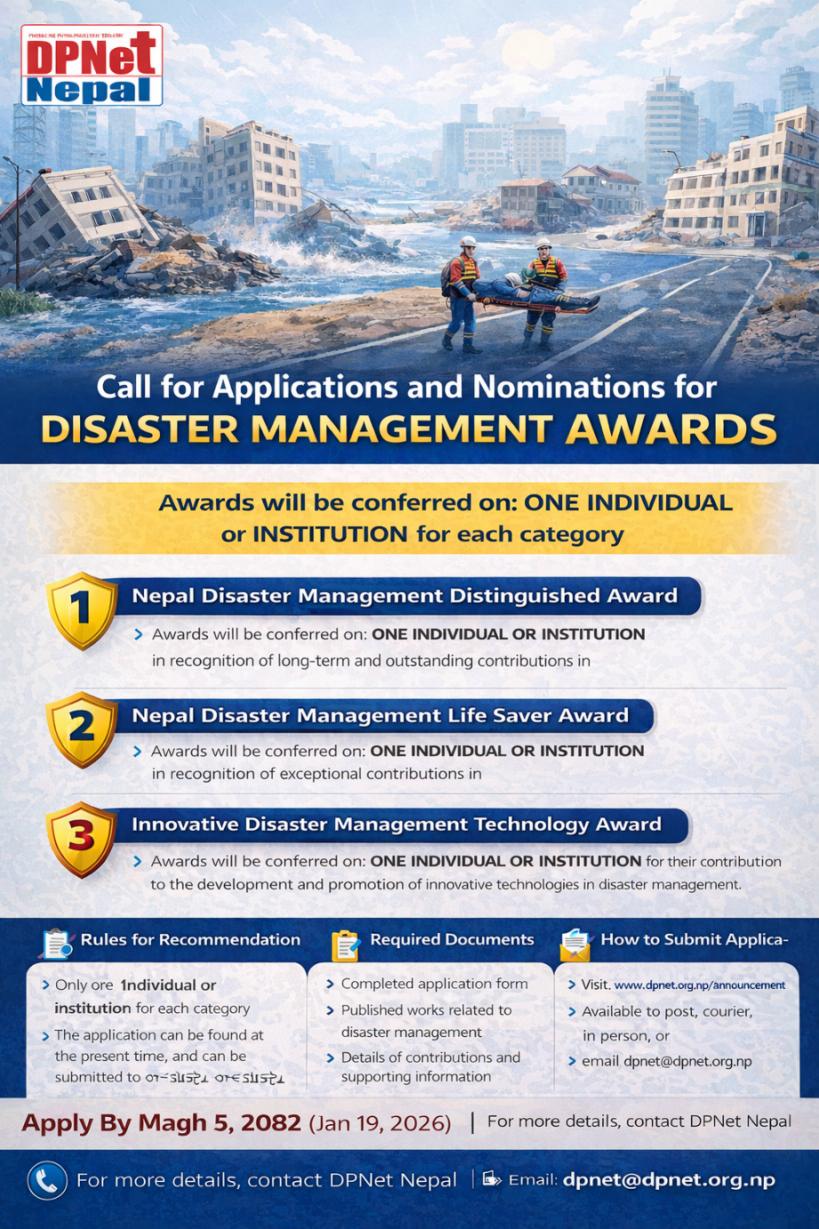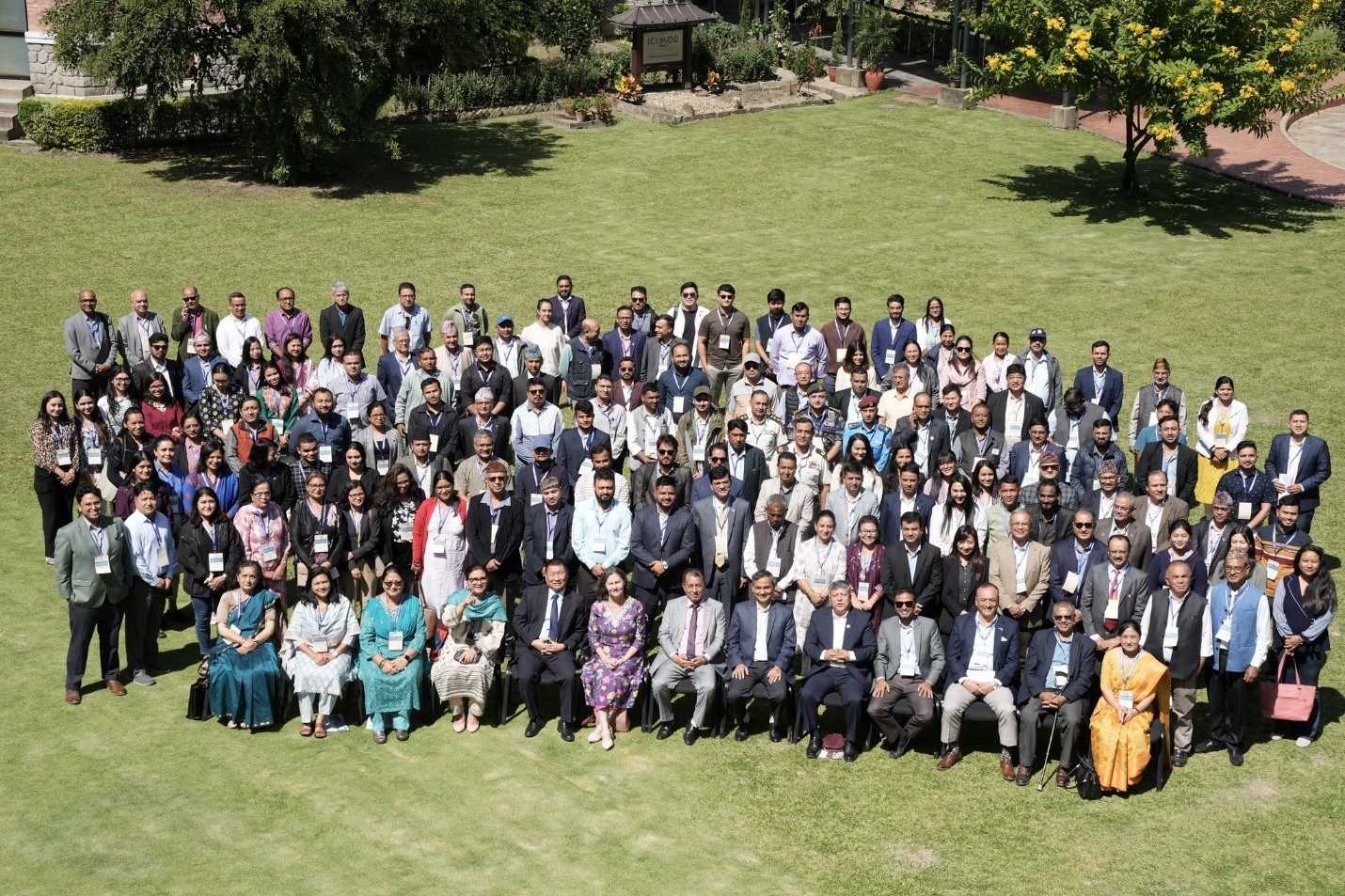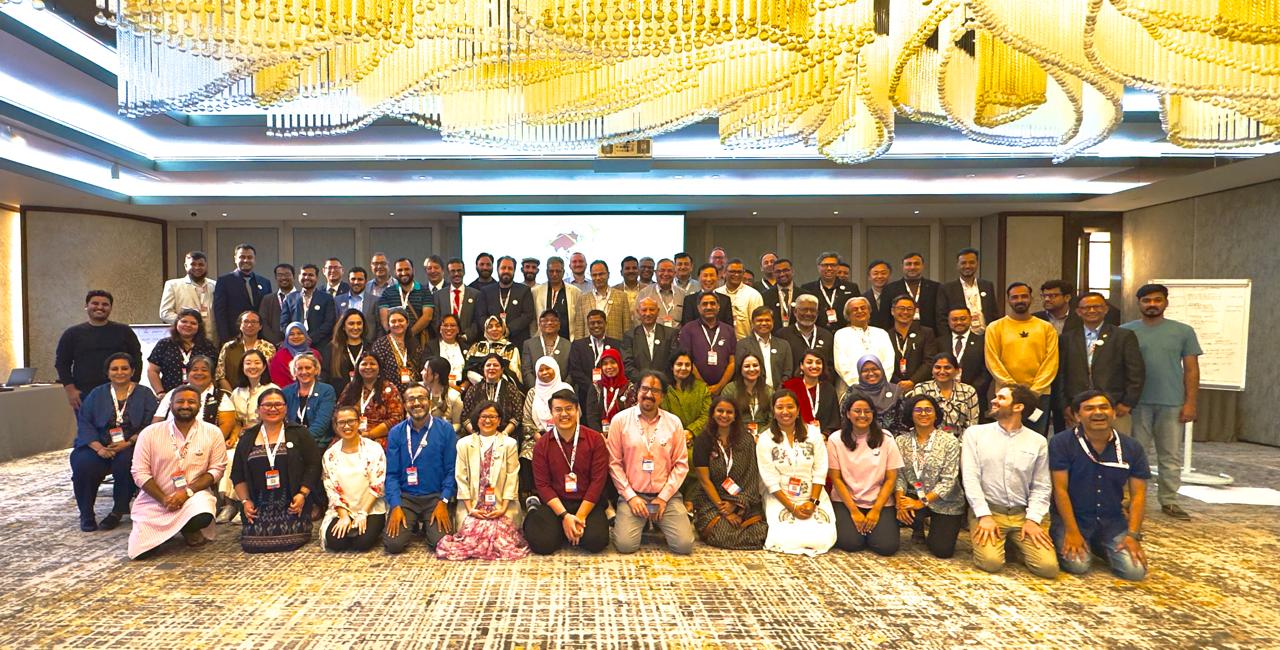Webinar Explores "Recurring Landslides and Way Forward" for Nepal

Webinar Explores "Recurring Landslides and Way Forward" for Nepal
July 16, 2020- DPNet-Nepal organized a webinar titled "Recurring Landslides and Way Forward" on July 16, 2020, as part of its knowledge management initiative. The event, presided by Mr. Surya Bahadur Thapa, Chairperson of DPNet-Nepal, featured Mr. Anil Pokhrel, Chief Executive of NDRRMA, as Chief Guest. Resource persons Dr. Kabi Raj Paudel, Dr. Jib Raj Pokhrel, and Dr. Prem Bahadur Thapa, along with 75 representatives from various organizations joined the webinar. The webinar utilized the Zoom platform with technical support from NSET.
The program commenced with Mr. Anil Pokhrel introducing the webinar and Mr. Raju Thapa, General Secretary of DPNet-Nepal, outlining the program's objectives and welcoming the participants. The resource persons then delivered their presentations on the topic.
Dr. Kabi Raj Paudel provided an overview of landslides in Nepal and proposed strategies for the future. He discussed Nepal's geology, the occurrence of natural disasters in different tectonic units, various types of landslides, regions prone to frequent landslides, major landslide examples, and issues related to road excavation practices. Dr. Paudel emphasized the need for engineering geologists in road construction and called for collaboration between government authorities and universities for research and studies. He also highlighted the crucial role of federal, provincial, and local governments in landslide control and mitigation measures. Dr. Paudel concluded by stressing the importance of proactive measures, such as identifying potential landslide areas and causes, and implementing prevention and mitigation strategies instead of conducting post-landslide studies.
Dr. Jib Raj Pokhrel and Dr. Prem Bahadur Thapa jointly presented cost-effective technologies for reducing landslide risks. They discussed the losses caused by landslides and emphasized the utilization of local skills, resources, and plants in landslide control and risk reduction. The presentation showcased examples of community-based landslide risk reduction projects implemented by TU and NAST, as well as the application of technical knowledge to help communities identify cracks and implement treatment measures. The presenters also introduced laser scanning technology for landslides and called for the involvement of DPNet members and NGOs in disseminating information on cost-effective technologies to local governments. A video demonstration of tension crack sealing by community members was also included.
The webinar generated several major concerns, including the organization of similar programs for floods, the possibility of regional early warning systems and settlement relocation in hilly regions, the need for systematic work on landslide susceptibility and hazard assessments, the dissemination of hydro-meteorological information for early warning systems, and the strengthening of NDRRMA at various levels.
In response to these concerns, it was suggested that settlement relocation should be considered after studying cracks, implementing early warning systems, practicing bioengineering techniques, and managing drainage effectively. The adoption of a low-cost and sustainable approach was recommended. Local governments were urged to incorporate low-cost technologies for landslide risk reduction, and efforts were underway to work on risk assessments and share relevant low-cost technologies upon request.
In closing, Mr. Anil Pokhrel expressed gratitude for the support received, highlighting NDRRMA's monsoon preparedness and response action plan for 2020. He acknowledged the challenge posed by landslides and emphasized the importance of actionable risk information and sector-specific integration. Mr. Surya Bahadur Thapa thanked the presenters for sharing valuable knowledge and stressed the need for science-based approaches to landslide risk reduction. He expressed gratitude to the participants, NSET for technical support, and the DPNet-Nepal team for organizing the successful webinar.











